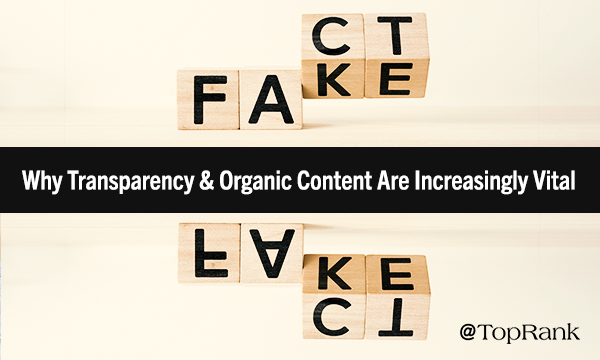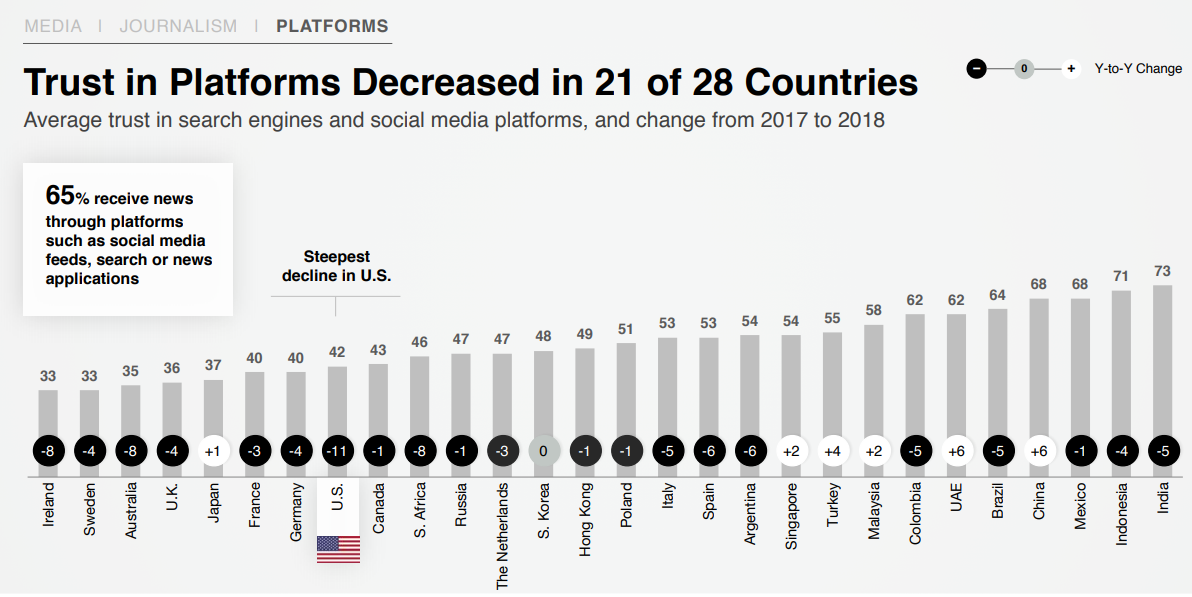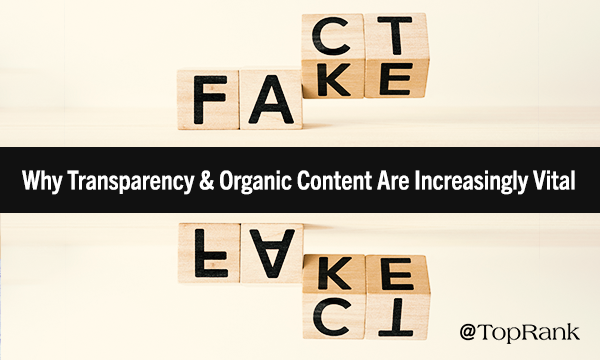When polled by CMO Council last year, 62% of marketers indicated that reports about false and faulty metrics have caused them to pull back on spend with Facebook and Google. Meanwhile, the latest Edelman Trust Barometer shows pervasive global drops in trust toward platforms — most sharply in the U.S. For digital marketers that value accuracy and honesty, it can be tempting to ignore these kinds of stories and headlines, going about our own business and letting all that noise play out on its own. Externally, we’re facing an audience that is growing more distrustful by nature. #1: Transparency is More Essential Than Ever It’s getting harder for people to take things at face value. One company that has impressed me with the way it embraces transparency is Lemonade, a tech-driven insurance company out of New York. The company’s openness about its journey makes customers more comfortable in taking part. #2: Investing in Organic Content Programs Now Makes More Sense Than Ever Paid media and digital advertising will forever remain important. It’s like renting traffic versus investing in traffic. That article from New York Magazine served as a red pill of sorts for me. Through transparent practices and the reliability of integrated content strategy, digital marketing and its reputation can thrive as much as ever.

“What you know you can’t explain, but you feel it. You’ve felt it your entire life, that there’s something wrong with the world. You don’t know what it is, but it’s there, like a splinter in your mind, driving you mad.” — Morpheus, The Matrix
~~~~~
“How much of the internet is fake?” pondered the headline of a late-December New York Magazine feature, before answering its own question: “A lot actually.”
What followed was a systematic unpacking of that premise, via author Max Read. Though somewhat cynical and harsh, his argument was backed by facts and evidence at every turn.
He documented case after case of fake traffic and fraudulent metrics.
He shared videos of phony engagement factories known as click farms.
He cited real stories and statistics that verify the prominence, pervasiveness, and pestilence of these issues.
Read’s article shook me out of my restful holiday contentment. This wasn’t all news to me, but never had I seen so many examples compiled into one grim, gut-wrenching montage. The internet is an inherently murky place – you can’t physically count visitors to a blog post, as you could with attendees at a conference speech or customers in a store – so the success of a digital marketplace hinges on our collective faith in the integrity of data (and intentions).
It’s not the number of non-human “users” that troubles me. We’ve known for some time that bots make up a large portion of website traffic, and any analyst worth their salt is accounting for that reality. What troubles me is the potential (inevitable?) existence of nefarious actors seeking to deceive and benefit — and the repercussions thereof.
Mr. Read puts it best with this poignant observation:
“What’s gone from the internet, after all, isn’t ‘truth,’ but trust: the sense that the people and things we encounter are what they represent themselves to be.”
Taking a Toll on Trust
The digital world saw its share of bombshells in 2018, and I’d argue few were bigger than the filing of an amended lawsuit from a group of small advertisers, alleging that Facebook knowingly delivered false video metrics back in 2015/16, and that the extent of this inflation was greater than previously believed.
Though just one isolated incident (hopefully), it’s the kind of headline that serves to further erode a diminishing level of trust between people and the institutions they rely on. These occurrences send shockwaves through the digital universe that are felt in every corner, with wide-reaching implications.
When polled by CMO Council last year, 62% of marketers indicated that reports about false and faulty metrics have caused them to pull back on spend with Facebook and Google. Meanwhile, the latest Edelman Trust Barometer shows pervasive global drops in trust toward platforms — most sharply in the U.S.

For digital marketers that value accuracy and honesty, it can be tempting to ignore these kinds of stories and headlines, going about our own business and letting all that noise play out on its own. This would be a mistake.
We can only control what we can control, but within that realm, there are steps we can take to counteract these troubling narratives.
Two Key Opportunities for Digital Marketers
Internally and externally, marketers are dealing with uphill battles that are steepened by these developments. Internally, we have…

COMMENTS